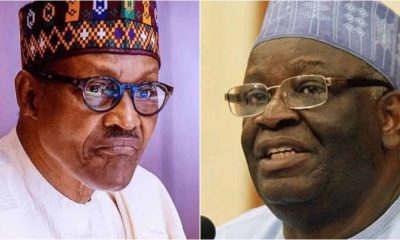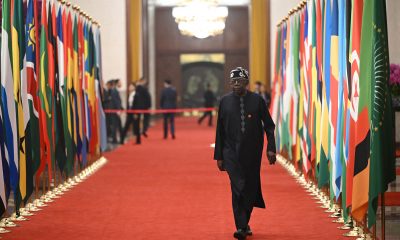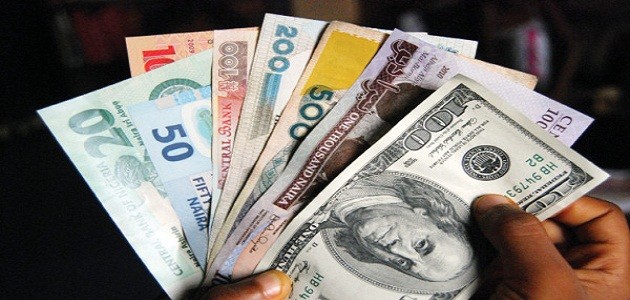Naira has depreciated against the US dollar, as it dropped from N455/$1 to N460/$1 on Thursday afternoon, according to data obtained from Everdon BDC in Lagos on Thursday.
The naira also dropped against British pounds sterling as it stands at N548 to £ 1 from its previous close rate at N545 to £1, while the Euro selling at N480 to €1 from its previous close rate of N470 on Wednesday.
In addition, the Central Bank of Nigeria has now said it would resume sales of forex to BDC for onward sales to businesses and Nigerians looking to purchase for approved items.
Consequently, Aminu Gwadabe, president, Bureau De Change Operators of Nigeria (Association of Bureau De Change of Nigeria) explained recently that Bureau De change operators will resume fully as soon as restrictions placed on air travel and international airports are lifted.
He said the return of the operators will help stabilize the naira and reduce the impact of currency hoarders and speculators.
Meanwhile, despite the foreign exchange liquidity crisis being experienced in the currency spot market, data obtained from CBN revealed that the country’s foreign exchange reserves have further increased to $36.16 billion (Gross Estimate) as of 28th of May, 2020.
The surge in Nigeria’s external reserves is due to the fact that the price of crude had gained more than 40% since the deadly COVID-19 pandemic started, coupled with reports that foreign investors are returning to Nigeria. The disbursement of $3.4 billion emergency facility by the International Monetary Fund (IMF) to CBN has also been a contributing factor.
Recall that the CBN Governor, Godwin Emefiele, had promised more liquidity in the currency market, assuring that all genuine dollar demands would be met.
However, an Interest rate expert, Ola Oladele, during a phone chat with Nairametrics, advised that the CBN should keep its word by boosting Nigeria’s Forex supply as the persistent downtrend in the currency black market continues. She said:
“The depreciation of the naira in the parallel market as a result of low supply of FX from official sources and less optimistic outlook on the economy due to falling oil prices. The BDCs haven’t received supply from official sources since our borders were closed and the crash in oil prices has made natural sellers of FX more cautious.

 Latest5 days ago
Latest5 days ago
 Trends6 days ago
Trends6 days ago
 Health1 week ago
Health1 week ago
 Football1 week ago
Football1 week ago
 Football1 week ago
Football1 week ago
 Latest1 week ago
Latest1 week ago
 Health1 week ago
Health1 week ago
 Latest1 week ago
Latest1 week ago

